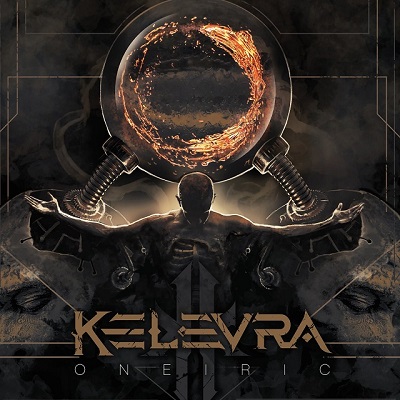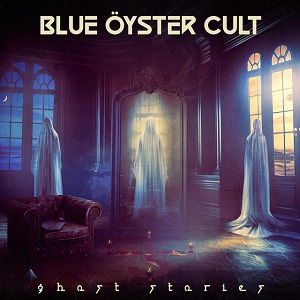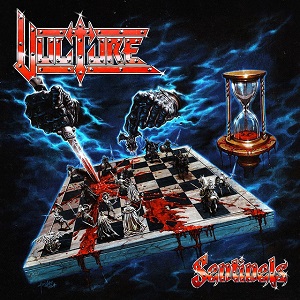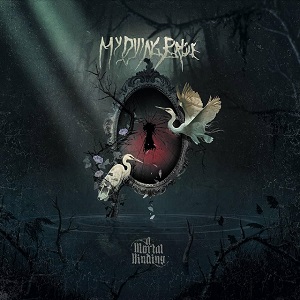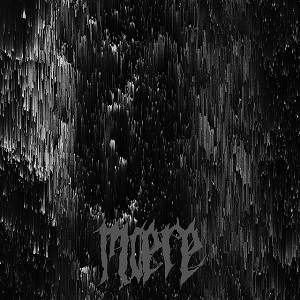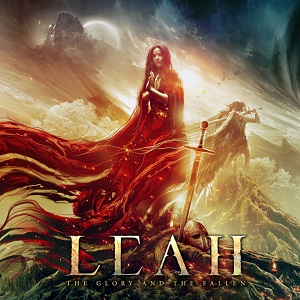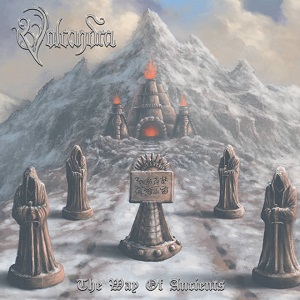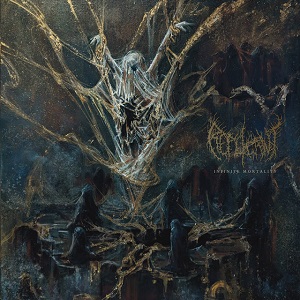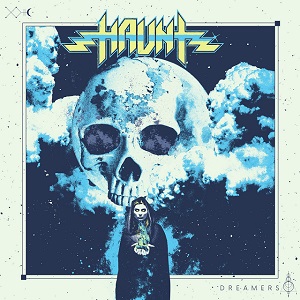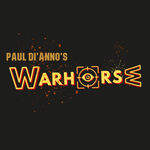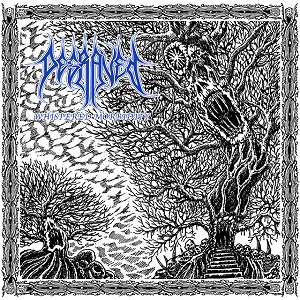LIFE OF AGONY’s ALAN ROBERT Talks Depression, The Sound Of Scars – “Some Things Never Change”
October 27, 2019, 4 years ago
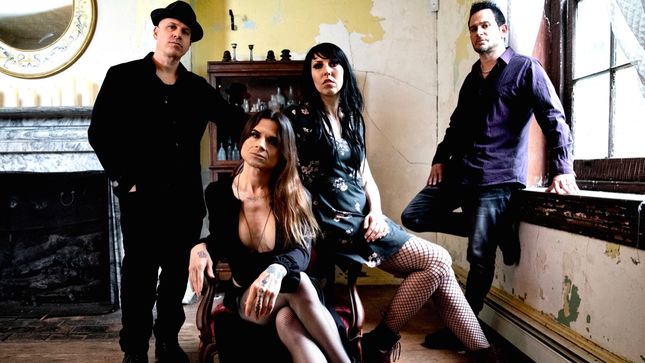
With The Sound Of Scars, Life Of Agony have delivered their first concept album since their 1993 debut River Runs Red, which told the story of a young adult who starts having impulses to take his own life after a series of travails start piling up. Principle songwriter/lyricist and bassist Alan Robert intentionally left the audience hanging at the end of that story, which left the door open for him to pick the story up again 26 years later.
As Robert explained on a phone call with BraveWords, the character they brought back represents a composite of the band’s collective experience. Their second album since frontwoman Mina Caputo’s well-documented gender transition, The Sound Of Scars was charged by the infusion of new blood in the form of new drummer Veronica Bellino. Scars also marks Life Of Agony’s first time working with legendary producer Sylvia Massy (Tool, Sevendust, Babes In Toyland, Love and Rockets).
Robert, who is also the author/illustrator of a series of graphic novels as well as gore-themed adult coloring books, called it “cosmic” that Scars was released just a day shy of the 26th anniversary of River Runs Red. An edited transcript follows.
BraveWords: River Runs Red gives us an idea of what you all thought back then was the worst thing that could happen to somebody. When you go back and look at the things that you struggled with 26 years ago, how has your perspective changed with the benefit of all the things you’ve had to deal with since?
Alan Robert: “Well, the one thing I’ve learned — about myself, at least — is that some things never change. As happy as I am, and as many great things as I have going on in my life right now — I have a beautiful wife and daughter, a family that loves me, and success through music and art — there’s still this depressive rumbling underneath the surface that I deal with on a daily basis. You look at all the people that took their own lives that you thought were having fantastic lives — people like Robin Williams and all the musical icons that we lost recently, people like [Linkin Park frontman] Chester [Bennington], people that were smiling in pictures hours before they took their lives — [you see that] that stuff never leaves. And I’m not sure there’s an answer to it, except for: the more awareness and the more people feel connected to the idea that they’re not alone, that helps. Going back to 1993, dealing with that rumbling of depression underneath real [external] turmoil, living in Brooklyn, New York in homes filled with domestic violence, alcohol abuse, and heroin overdoses, we just wanted to escape. Music was our ticket out. We didn’t realize it at the time, but it gave us a lifetime of escape that a lot of people never get. If I didn’t have music to channel all that negative energy, I’m not sure where I’d be — or if I’d be.”
BraveWords: How much did you relate to each other over everything you’re describing?
Alan Robert: “Back in the day when Mina was more of a hardcore singer and I was encouraging her to add melody, I would show her what I had in mind for songs like ‘This Time’ and ‘Through and Through’. Our idols back then were people like Roger Waters. He would hit these high notes that were so impactful it made the hair on the back of your neck stand up. Those were the types of moments we were looking to capture with our own music. I was reaching for those same registers. Believe it or not, people like Sinead O’Connor was such a huge influence on us back then, with the intensity that she brought to albums like The Lion and the Cobra. So we bonded in that way, but I have to say that we never really talked about the depression back then. If anything, when we got together, it was more or less a fun hang. We would look forward to jamming, especially in the old days when we’d be walking from [guitarist/co-producer] Joey [Z]’s house with our instruments to the rehearsal studio. [Laughs.] It was more of a friends-bonding thing. And then over the years, as it became more of a career, there was a lot more pressure on us. Especially during the Ugly era, those bonds broke down. I think we were kind of suffocated under the pressure of it all.”
BraveWords: One of the most fascinating things about people who suffer from depression is how functional they can be and how they can maintain an incredible work ethic.
Alan Robert: “Well, I’m one of those functioning depressives, I guess. [Laughs.] Because I can’t just sit around and, like, watch sports on TV. That’s not my personality. I’m known for locking myself in my studio and drawing for ten hours straight while listening to podcasts and getting lost in my own head. That’s kind of where I’m comfortable. I was always that way, even going back to being a young kid in elementary school. I would be the quiet kid at the lunchroom table drawing monsters in his book with the other kids gathering around to see what I was drawing. The last thing I ever wanted to do was be onstage.”

BraveWords: So how much has your depression ever interfered with the band’s forward momentum?
Alan Robert: “I don’t know if it got in the way as much as it kind of came up through the music. [Laughing:] Songs like ‘Lost At 22’ from the Ugly record were written on the road because I didn’t want to be on the road. A lot of my feeling of alienation [stemmed from] feelings that developed on the road. I was completely straight. I wouldn’t drink and never tried drugs, which were all around us on the road. So I felt like a fish out of water a lot of the time. I was the first one to go to bed on the tour bus. [Laughs.] That’s just how I rolled. Nowadays, I’m a little looser. I like my craft beer and my wine, but back in those days I was pretty uptight and pretty locked in my own head. The road was chaos, and you could either run with that vibe and just take everything in and try everything in, or you can kind of rebel against it. I think that’s what I did. I’ve gotten more outgoing over the years, but back in those days I was super-quiet. I had a lot of fears.
BraveWords: Like what?
Alan Robert: “Fears of pushing myself out of my comfort zone. In my later years, especially with art, I’ve purposely pushed myself to draw in different styles for every book that I’ve tackled. I’ve almost trained myself on my own for several months before diving into a new graphic novel or this coloring book series that I launched a couple of years ago. I’ve tried to re-invent myself every time I’ve taken something on. That’s something I never would’ve done back in the day. Little by little, all these steps are [moving] toward healing in a way.”
BraveWords: For somebody who’s introverted, that’s got to be extremely challenging to be surrounded by people all the time.
Alan Robert: “[Laughs.] Yeah, especially back in those days when we traveled with a much bigger group. Sometimes we would share busses with bands and crew and you’d have like 30 people on one bus for like two months in the dead of winter. Looking back now, there was a time we did that with Pro-Pain and The Spudmonsters [in 1994 --- Ed.] and instead of taking a bunk I took the downstairs lounge and slept on top of piles of merchandise. [Laughing:] I don’t know if that was a conscious decision or what.”
BraveWords: You talked about listening to Sinead O’Connor and Roger Waters. There’s always been a trace of a hardcore element in your sound, but if people just look at your body of work without knowing anything about your history, they might go, “Oh, this is a groove metal band.” Could you talk about how much punk and hardcore are in the band’s DNA?
Alan Robert: “When we first started, Peter Steele was a legend, especially in Brooklyn. Carnivore’s Retaliation was one of our favorite records. We would go to the local shows at L’Amour in Brooklyn and CBGB’s in the city. We were definitely part of that scene. We loved those bands — Agnostic Front, Sick Of It All, Biohazard. Biohazard was a huge influence on us. We knew them personally. I mean, I lived right across the street from [Biohazard frontman] Evan [Seinfeld] as a kid in Canarsie. He would actually babysit me when I was really young.”
BraveWords: Wait a minute, you gotta tell us what Evan Seinfeld was like as a babysitter.
Alan Robert: “[Laughs.] Both my parents worked in the school system and Evan would watch me after school. In his room, he had all these drawings of Gene Simmons. He was actually a good artist. He would draw Gene Simmons spitting blood and fire. He had a Tasmanian Devil doll swinging from a ceiling fan, and we would watch Cheen & Chong movies until my parents got home.”
BraveWords: That’s fairly wholesome when you think about it.
Alan Robert: “[Laughs.] That was actually my first exposure to heavy metal. He loved KISS so much, the first record I ever bought was KISS’s Double Platinum at the local McCrory’s for like $3.99.”
BraveWords: This is the first time since your original ‘90s run that you’ve gotten to follow-up a record with another record right after.
Alan Robert: “It happened very naturally, because we got a new drummer, Veronica, last year. When she joined, our main goal was kinda to just play songs we hadn’t played in years, go back to the old records, listen to them together with fresh ears, and find the hidden gems we’d never played. We got to experience that together, and by doing that we got all fired up. We were like, ‘You know, we haven’t listened to this stuff in so long.’ And there are certain songwriting elements that we abandoned along the way from record to record, you know, as you evolve and are interested in different things and [pick up] different influences. But with this record, we went back to the very beginning of the origins of the band and the motivations we had when we wrote River Runs Red. We really tapped back into that mindset. We were never out to copy what we did, but we were definitely influenced by the feelings that we had when we made that record.”
BraveWords: So it sounds like you still enjoy your older material.
Alan Robert: “Yes and no. I like the songs more than I like the recordings, let’s put it that way. Hearing the actual sounds brings me back to the time of making those records, and some of those times weren’t that great.”
BraveWords: There’s a lot of water under the bridge with this band — multiple breakups and fits and starts. How much have songs built up during those periods of inactivity?
Alan Robert: “It changes, but the period between 2005 until 2014 after Mina came out was rough. When we were on Sony with The Broken Valley record, Sony released the record with this illegal spyware on it to prevent listeners from downloading music illegally. Sony got hit with a class-action lawsuit, they lost the suit, and about five months after our record was out, the record got pulled from the shelves. This was our first major label deal after being on Indies our whole life. We had a lot of expectations that we watched fall apart in maybe a week. That took a big toll. [We were questioning] how we looked at the industry, our careers and what the hell we were doing. We finally got off the label but then we weren’t inspired to write anything because we felt so disheartened about the whole thing. So we kinda went our separate ways. But then Mina came out, she felt more empowered and we just rallied behind her.”
BraveWords: So what is it that’s enabled you to hold things together since 2014?
Alan Robert: “Well, I think Mina coming out was huge. In the ‘90s, we were doing some pretty big tours. Like, we were opening for Ozzy and Korn in arenas in the States. I think Mina back then was really unsure of who she was and hiding behind that microphone. And now, when you see her, she’s so comfortable in her own skin and right there in the front in your face, it’s like night and day. It’s like we finally got the front person we’d always wanted and needed. In that respect, she’s just a lightning bolt of energy, whereas back in the day she was kind of subdued, kind of shy and introspective onstage — a completely different vibe.”
BraveWords: How much were you picking up on Mina’s inner turmoil back in the ‘90s?
Alan Robert: “I mean, I always picked up on it, but I always chalked it up to having a different cause or roots, because I was unaware. There was always something kinda brooding there.”
BraveWords: Being somebody who was more withdrawn yourself, how much did you relate to Mina?
Alan Robert: “I think we always had an unspoken bond going back to when we were kids, but you gotta remember that Mina offstage was completely different than she was onstage. She was always joking around, always playing practical jokes on people and always laughing when we were together with friends. And when she would get onstage she would close up.
BraveWords: The band has presented a unified front in supporting Mina’s transition. You’ve even said in the past that that wasn’t the main cause of the band pulling apart. But how much of a learning curve was there for you to get used to the situation.
Alan Robert: “A lot! [Laughs.] Not as far as having the open-ness to accept her, but as far as learning about her unique situation, yeah I had to be brought up to speed on what she was thinking and feeling. I mean, I found out that she came out to world on Twitter when I was standing onstage and we were about to play a show in Europe. The promoter showed me his phone and was like, ‘Should I announce that this is your last show ever?’ I was like, ‘Why?’ And he said, ‘Because this just broke on the metal news sites.’ [The implication being that metal fans wouldn’t accept the change — Ed.] So learned about it right then and there. We played the whole show and then Mina and I went back to the tour bus and cried it out. I had no idea, and as one of her longtime friends I felt so [pauses and sighs]... sad. So sad that she didn’t feel comfortable to tell me beforehand. She was scared — I mean, she’s lost a lot of people. But the friends and family that she has kept have rallied behind her more so than she ever thought.”
BraveWords: It’s interesting that the promoter assumed that that would be the death knell for the band.
Alan Robert: “[Laughs.] Yeah. That’s how some people look at it. The first time we ever took the stage [after Mina’s transition] in 2014 when we played in Belgium with Marilyn Manson, the energy of support [coming off] the crowd was unbelievable. I’d never experienced anything like that. It was like a roar. We didn’t expect that. We didn’t know what was going to happen, if people were going to throw fruit at us or what. So you’d be surprised. Especially the metal-hardcore crowd, at least in my experience, has been such a big community.”
BraveWords: When Mina left the band in 1997 after Soul Searching Sun, you got together with Whitfield Crane of Ugly Kid Joe. How did that come together, and what went wrong there when you were trying to record the follow-up album that never got finished?
Alan Robert: “First of all, I love Whit. I just heard from him for my birthday. We were connected by Scott Ian and the Anthrax camp. We were managed by the same manager and we shared a studio in Yonkers, New York with Anthrax. We were auditioning singer after singer and no one could hit those notes off River Runs Red. He was always into bands like Black Sabbath and Priest — heavier stuff that you’d think he was into. He’d always wanted to be in a heavier group. The very first time he walked into the studio, he belted out ‘River Runs Red’ like it was no problem. We knew that he had the stage experience and that he’d rocked [big stages] with Ugly Kid Joe opening for Bon Jovi and stuff like that all over the world. So he had that confidence and that stage persona. He fit right in. But, especially in the live setting, it lacked the emotion and genuine quality that Mina brought. It was a bit of a karaoke-type of performance. I mean, it was really hard thing to do, but that’s why it didn’t work out when it was time to work on new material.
BraveWords: How much did you miss the band?
Alan Robert: “It was a really tough low point, because not only did we go our separate ways musically, but also as friends. We kinda dropped out of each other’s lives for a few years there.”
BraveWords: Since it’s Halloween, what does that do for your coloring-book sales?
Alan Robert: “[Laughs.] It’s kinda the best time of year for me. It always has been.”

